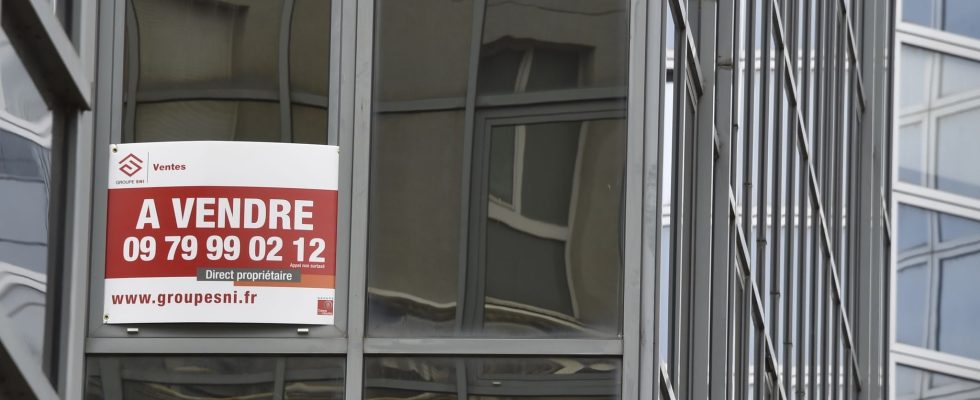By 2028, to protect the climate from unnecessary CO2 emissions, the government wants to help the French save energy. To support this “energy sobriety”, standards are becoming more and more demanding. Since July 1, 2021, due to the application of a new calculation method governed by new algorithms, “the DPE E, F, G are increasing sharply”. Since January 1, 2023, all homes whose energy consumption exceeds 450 kWh/m²/year (classified G+ on the DPE) are prohibited from renting in application of the Climate and Resilience Law of August 2021. Paris is the French department with the most housing classified as G+. These are mainly small apartments, 56 m² on average, and heated with electricity.
To fully understand, we looked at the “DPE” of a young active new owner of a 2-room apartment of 25 m² in the 15th arrondissement of Paris. This apartment, located on the fourth and top floor of a building, is classified “G”. 450,000 have already been banned from renting in France since January 1, out of the approximately two million G-rated housing in the country.
We must be aware of the fact that making these homes ineligible for rental in 2025 will cause a serious social crisis amplifying the current housing crisis, which excludes more and more people.
An algorithm and a concept!
The consumption calculated by the algorithm in the DPE is 808 kWh/m²/year of “primary energy”. It is enormous ! The concept of “primary energy” assigns a coefficient to electricity of 2.3. In other words, the same gas-heated home would obtain a score of 351 kWh/m²/year and would be classified as F… A curious country where electric cars benefit from an ecological bonus, while electric apartments are subject to an penalty!
In addition, this algorithm turns out to be very unfavorable for small housing. According to Ademe statistics, nearly 34% of homes of less than 30 m² have an F or G label, compared to only 13% of homes of more than 100 m². According to Jean-Christophe Protais, the president of the federation of real estate diagnosticians, interviewed by The echoes“compared to the number of square meters, the loss surface of a small home is greater than that of a large home”.
The Minister of Energy Transition, Christophe Béchu, has recognized this on several occasions. A knowledgeable diagnostician made this remark to us: “In a small apartment, the water heater alone brings you to class G. This is what we call in our jargon the hot water tank effect.” A person who works in the social housing sector (HLM) testifies on was rehabilitated in 2018 to obtain a ‘C’ label. So all the cumulus clouds from 2018 will go to landfill.”
The grade for CO2 emissions is “C” with 26 kg of CO2/m²/year, the equivalent, it is specified, of “3310 km traveled by car”… We do not specify which car it is acts… because in this case, in this apartment, the heating is electric! However, in France, electricity is 92% carbon-free thanks to our nuclear power plants and our dams… In conclusion, renovating this apartment will not change anything about the climate!
Investing billions in the energy renovation of homes with poor diagnoses will neither allow the residents concerned to save energy nor allow France to act effectively for the climate. The regulatory principles must imperatively be anchored in justice, efficiency and a measured balance, while generating favorable consequences. The energy transition must not be dependent on absurd rules, resulting from the hyper-bureaucratization inherent in ecological strategies guided by ideology and technocracy.
Seeing 31% of small apartments leave the rental stock because of an algorithm and a bad concept is a disaster for the real estate market, for students, for young workers, for the middle classes! But no one seems in a hurry to change all this, and we end up wondering whether, in our country, it is the ministers who govern, the administrations who write or the approximate algorithms and vague concepts which direct.
“One day I will go and live in Theory, because in Theory everything goes well.” said Pierre Desproges. It is more than urgent to leave Theory to live in practice!
* David Lisnard is mayor of Cannes and President of Nouvelle Énergie; Yves d’Amécourt is an engineer and former mayor of Sauveterre-de-Guyenne; Viviane Chaine-Ribeiro is Vice-President of Nouvelle-Énergie and former President of Action Logement Immobilier
